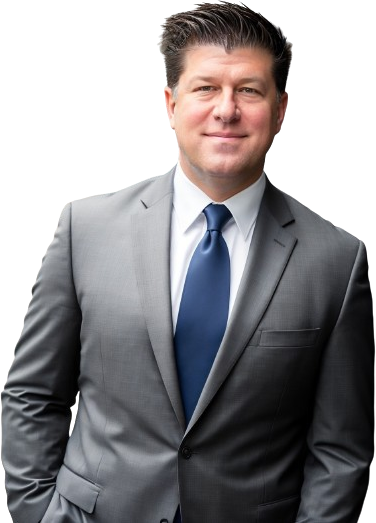
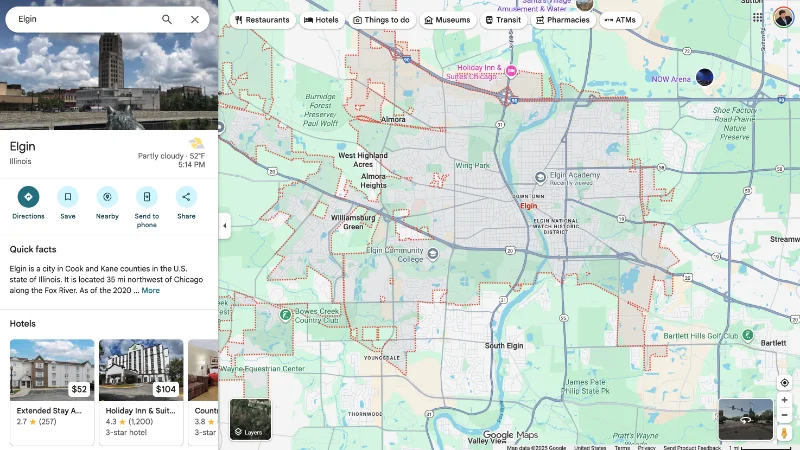
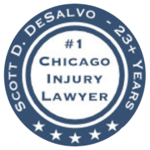

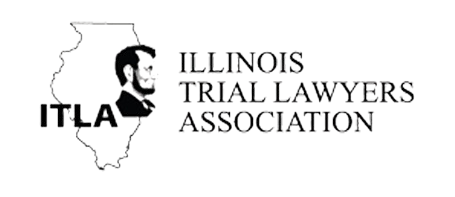
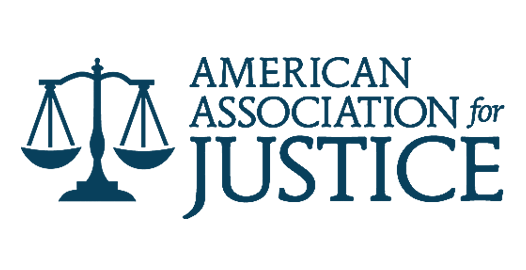
Teresa contacted me last winter after everything fell apart. She didn't want to come downtown, so I drove out to meet her at a coffee shop near Route 20 in Elgin. Too angry to deal with offices and formalities at that point.
Her husband went into the hospital for gallbladder removal. Standard procedure—laparoscopic, minimally invasive, routine as hell. Surgeon told them he'd be home in two days, back to work within a week. Except during the operation, the surgeon punctured his bile duct. Completely avoidable mistake.
Here's where it gets worse—nobody said anything. They sent him home. For nearly two weeks, he's getting sicker. Fever, jaundice, intense pain. They keep telling Teresa it's normal post-surgical inflammation. Just give it time, they said.
Eventually another doctor orders a CT scan and finds bile leaking all through his abdomen. Emergency surgery. Infection throughout his body. Three more operations to fix what should've been handled the first time. Six weeks in the hospital. Months of recovery. Medical bills over $400,000.
The hospital's risk management team offered $25,000 to make it go away. Twenty-five thousand dollars. That wouldn't even touch the bills they'd already racked up, let alone compensate for the permanent damage to his health or the months of terror Teresa lived through watching her husband nearly die.
This kind of crap infuriates me. And unfortunately, I see it all the damn time.
Look, doctors are human—mistakes happen. I get that. But when hospitals and healthcare systems try to hide their errors, minimize what happened, and throw insulting settlement offers at devastated families, that's when I step in. Their attorneys are protecting the institution. Insurance adjusters are protecting profits. Nobody's protecting you.
If medical negligence destroyed your health—or took someone you love—you have legal rights. You can fight back. You should fight back.
These cases are expensive and complicated to pursue. Healthcare providers have massive legal budgets and teams of lawyers ready to go. That's precisely why you need someone who knows how to handle medical malpractice litigation and won't back down when things get difficult.
I work on a contingency fee basis. That means I don't collect a dime unless you win compensation. No upfront costs. And I'm not the type of attorney who disappears after business hours. Got a question at 2 AM? Call me. I'll pick up.

Whether you got hurt in a car crash, truck accident or it involved a bicycle, bus, train or even Uber or Lyft, we work hard to get you a top settlement fast!
Workers Comp and Third Party Work Injuries are handled with the best speed and professionalism to get you a fast and full recovery for work injuries.
Fell at a business or got bit by a dog or hurt by someone who was intoxicated? We make sure all the boxes are checked in premises liability cases to get it all for our clients.
Medical errors are the third highest cause of death in the United States, and we take an aggessive, meticulous approach to these most challenging cases to win for our clients.
Nursing home cases can involve falls, mistreatment, or bad medical care, buy they always involve a betrayal of trust, and that's why we pull out all the stops to maximize results for our clients.
Elgin's on major truck routes—I've beaten big trucking companies in cases just like yours. Call us before they hide the black box data.
I get calls constantly from people wondering whether they have a viable case. Sometimes they do. Sometimes they don’t.
Poor medical outcomes don't automatically equal malpractice. Medicine is inherently risky. Complications can happen even when every protocol gets followed perfectly. That's just the nature of healthcare.
The critical question is whether the healthcare provider adhered to the "standard of care." In other words, did they provide the level of treatment that a reasonably competent medical professional would have provided under similar circumstances?
Take Teresa's husband's surgeon—bile duct injuries can occur during gallbladder surgery, even with skilled surgeons. That alone might not be malpractice. But failing to recognize it happened during the procedure? Not properly monitoring the patient afterward? Dismissing obvious warning signs? That falls below the acceptable standard of care. That's where negligence enters the picture.
Under Illinois law, proving a medical malpractice case in Elgin requires establishing four elements:
A doctor-patient relationship existed. This is typically straightforward. If they provided medical treatment to you, the relationship is established.
The healthcare provider violated the standard of care. This requires expert medical testimony. We retain physicians in the relevant specialty who analyze your case and explain what proper care should have looked like compared to what actually occurred. I maintain professional relationships with qualified medical experts throughout Illinois who aren't afraid to identify negligence when they see it.
That breach of duty directly caused your injuries. This is the causation element. We must demonstrate that if the medical provider had performed their duties competently, you wouldn't have suffered these specific injuries.
You sustained quantifiable damages. Medical expenses, lost income, physical pain, disability, diminished quality of life—we document everything and calculate what you'll need for ongoing care as well.
Illinois makes pursuing these cases deliberately difficult. Strict filing deadlines, mandatory expert affidavits, numerous procedural requirements—all designed to shield doctors from accountability. Healthcare industry lobbyists have spent decades constructing barriers. They're betting you won't understand the process or will get discouraged and give up.
That's where I come in—navigating the legal complexities while you concentrate on healing.
I've encountered virtually every type of medical negligence over the years. Some cases are so completely preventable they keep me awake at night. Here's what crosses my desk most frequently:
Surgery carries inherent risks—patients understand that going in. But certain mistakes are inexcusable.
Wrong-site surgeries where they operate on the incorrect body part or even the wrong patient entirely. Surgical instruments or sponges left inside patients. Damaging blood vessels or organs that shouldn't have been touched. Nerve injuries from careless technique. Post-surgical infections from unsterile conditions. Anesthesia errors causing oxygen deprivation and brain damage.
I represented an Elgin resident who underwent routine knee arthroscopy at a local surgical center. The orthopedic surgeon damaged the popliteal artery behind her knee—a major blood vessel. Didn't realize it during the procedure. By the time they figured it out hours later, she'd developed compartment syndrome. Ended up losing part of her calf muscle. Permanent disability from what should have been a simple outpatient procedure.
Healthcare facilities have extensive safety protocols and checklists specifically to prevent these types of errors. When they ignore their own procedures and patients suffer permanent harm, I ensure they're held accountable.
Timing is absolutely critical in medicine. When doctors fail to identify conditions quickly or miss them completely, treatable illnesses become fatal.
Cancer that goes undetected or gets misdiagnosed as something benign. Heart attacks dismissed as indigestion or panic attacks. Stroke symptoms attributed to migraines. Bacterial infections progressing to septic shock. Deep vein thrombosis mistaken for muscle strains.
I had a case involving a woman in her early forties who kept reporting severe abdominal pain to her primary care physician. He attributed it to stress and irritable bowel syndrome. Prescribed antacids. Told her to manage her anxiety better. This went on for eight months. Finally, she collapsed at work and ended up in the emergency room. Ovarian cancer—advanced stage. A simple ultrasound or CA-125 blood test during any of those appointments would have caught it early. Instead, she got a terminal diagnosis.
When physicians fail to order appropriate diagnostic tests or dismiss clear warning signs because they're not paying attention, that's medical negligence. When patients die because of it, their families deserve compensation and accountability.
These cases affect me deeply every single time. Parents expecting to welcome a healthy baby instead face lifelong disabilities because medical staff made preventable mistakes during labor and delivery.
Cerebral palsy resulting from oxygen deprivation during birth. Brachial plexus injuries (Erb's palsy) from excessive force during delivery. Fractures. Maternal infections that weren't properly treated. Delayed C-sections when the baby was clearly in distress. Permanent brain damage because nobody responded to fetal heart rate abnormalities on the monitor.
These children require intensive care for their entire lives. Physical therapy, specialized equipment, multiple surgeries, lifetime medications. The financial burden runs into millions of dollars. Families shouldn't bear that alone when the injuries occurred because obstetric staff failed to do their jobs competently.
I work with obstetric specialists who can review labor and delivery records and identify exactly where the medical team's actions fell below the standard of care.
Wrong medication prescribed. Incorrect dosage. Failure to check for dangerous drug interactions. Pharmacy dispensing someone else's prescription. People die from these errors regularly.
I handled a case where a man in his seventies was prescribed a medication that had a severe interaction with his existing cardiac medication. The contraindication is flagged in every medical database and pharmacy system. Either his cardiologist didn't bother checking, or the pharmacist ignored the alert. He developed life-threatening arrhythmia. Cardiac arrest. Resuscitated but suffered permanent heart damage.
Doctors and pharmacists have a responsibility to get medications right. When they don't and patients suffer serious harm, they need to be held liable.
Emergency departments in Elgin and throughout Kane County are supposed to evaluate, diagnose, and stabilize patients. Sometimes they discharge people with serious conditions nobody identified.
Appendicitis misdiagnosed as gastroenteritis. Cardiac events dismissed as anxiety or acid reflux. Bacterial meningitis sent home as a tension headache. Fractures missed because X-rays weren't read carefully. Traumatic brain injuries nobody properly assessed.
When you arrive at an emergency room, you're trusting medical staff to take your symptoms seriously and order appropriate diagnostic tests. When they don't and you end up back in the ER days later in critical condition—or worse—that constitutes malpractice.
Elderly residents in Elgin nursing facilities deserve competent, compassionate care. When facilities slash staff to maximize profits, residents suffer.
Pressure sores from inadequate repositioning. Preventable falls. Severe dehydration. Malnutrition. Medication administration errors. Sometimes outright physical or emotional abuse.
I've visited nursing facilities where staffing levels are criminally inadequate. Residents left in soiled bedding for hours. Call lights going unanswered indefinitely. Patients who've fallen lying on the floor waiting for someone to notice them.
When nursing home negligence causes serious injury or death, I pursue claims against both the facility and the parent corporation. These companies need to understand that cutting corners on care has real consequences.
If you suspect medical malpractice harmed you or someone you love, take these steps immediately:
Get proper medical attention right away. Your health comes first. See another doctor, go to a different hospital, get a second opinion. Document the new diagnosis and treatment.
Request copies of all your medical records. You're legally entitled to them. Get records from every provider involved—doctors, hospitals, labs, imaging centers, pharmacies. Don't wait—get them now while they're available.
Document everything while it's fresh in your memory. Write down dates, times, names of doctors and nurses, specific conversations, symptoms, treatments. Take photographs of visible injuries. Save all bills and receipts.
Call me before you talk to anyone from the hospital or insurance company. They'll reach out sounding sympathetic and concerned. They're not there to help you. Everything you say gets recorded and will be used to minimize your claim. Direct them to me.
Continue treating with your physicians. Don't miss appointments or stop following medical advice. Defense attorneys will argue that if you're not actively treating, your injuries can't be that severe. Keep all appointments and comply with treatment plans.

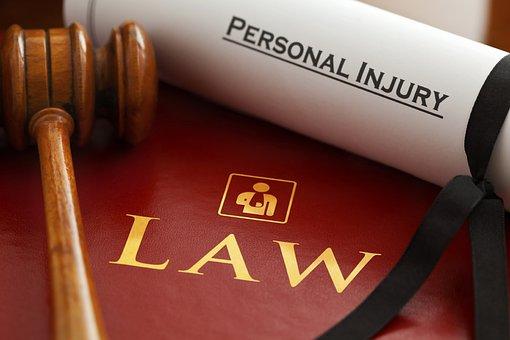

Zero unless I recover compensation for you. I handle cases on a contingency fee basis. My payment comes from your settlement or verdict. If we don't win, you owe me nothing. I also advance all litigation expenses—expert witness fees, court filing costs, deposition expenses, medical record retrieval. You don't reimburse those unless we recover money.
It varies significantly. Some cases settle within eight to twelve months. Others take two to four years, particularly if we go to trial. I push cases forward as aggressively as possible without compromising the outcome.
Absolutely. I've litigated against some of the largest healthcare institutions in northern Illinois. Their size and reputation don't intimidate me. Actually, larger hospitals typically carry more substantial insurance coverage, which can result in higher settlements.
No. Apologies don't negate negligence. Illinois actually has a statute preventing apologies from being used as evidence in medical malpractice litigation. A doctor can apologize all they want—it doesn't affect your legal rights.
No. Informed consent documents explain potential risks and complications. They don't give healthcare providers permission to be negligent. Signing a form acknowledging that surgery carries risks doesn't mean the surgeon can leave surgical instruments inside your body.
There's no standard formula. Case value depends on injury severity, your age and earning capacity, future medical needs, pain levels, degree of disability, and numerous other factors. When we discuss your case, I can provide a general range based on comparable cases. But the accurate answer comes after thorough investigation.
I work around your schedule. Need to meet on weekends or evenings? That's fine. Can't come to the office because of your injuries? I'll come to you. Most cases settle before trial anyway, so you probably won't need to take time off for court.
If the case goes to trial, yes. But most cases settle before reaching that point. And if we do go to trial, I'll prepare you thoroughly. You'll understand exactly what to expect and what questions you'll face.
Defense attorneys use this tactic frequently. They'll allege you didn't follow post-operative instructions or didn't take medications as prescribed. That's why meticulous documentation is crucial. We review your complete medical records and retain experts who can testify about whether anything you did actually contributed to the injury. This defense typically collapses under scrutiny.
Yes. You can terminate your attorney at any time. I've taken over cases from other lawyers who weren't adequately representing their clients. If your current attorney isn't fighting for you, call me.

Plenty of attorneys advertise personal injury services. Some are competent. Many aren't. Here's what distinguishes my practice:
I personally answer my phone. When you call, you reach me directly. Not a receptionist. Not a paralegal. If I'm in court or meeting with someone, I return your call myself. Typically within an hour.
I'm accessible around the clock. Medical crises and legal questions don't respect business hours. You can contact me at 11 PM or on Sunday morning. If you need to discuss something, I'm available. That's not marketing hyperbole—it's how I operate.
I handle your case personally from beginning to end. Some law firms hand cases off to junior associates after the initial consultation. Not here. I review all medical records, conduct depositions, handle negotiations, and try cases myself. You hired me specifically, so you get me specifically.
I don't settle for inadequate amounts. Some attorneys accept tons of cases and settle them quickly for whatever they can get. I accept fewer cases and fight harder for each one. I'll reject a settlement offer if it's insufficient, even if accepting would be easier.
I understand medical science and terminology. After handling medical malpractice cases for years, I've analyzed thousands of pages of medical documentation and collaborated with dozens of physician experts. I understand medical procedures, clinical terminology, and standards of care. When I read your records, I know what I'm looking at.
I know the Elgin area and the local legal landscape. I'm not some downtown Chicago attorney unfamiliar with Kane County. I know the area, the hospitals, the courts, the judges, the defense lawyers. That local knowledge matters.
I genuinely care about my clients. This isn't just a profession for me. When I accept your case, I'm personally invested in the outcome. I think about my cases constantly—evenings, weekends, doesn't matter. Your case matters because you matter.
Find Out What YOUR Case Might Be Worth...for free.
Here's something healthcare institutions don't advertise: preventable medical errors are among the leading causes of death in the United States. Research indicates that medical mistakes kill over 250,000 Americans annually. Some estimates place the number significantly higher.
But holding healthcare providers accountable is extraordinarily difficult. Statutes protect physicians. Insurance companies fight every claim aggressively. Juries are reluctant to blame sympathetic healthcare workers. The legal system constructs obstacles at every turn.
The vast majority of medical malpractice never results in lawsuits. Patients don't realize they have valid claims. They assume poor outcomes are simply unfortunate. They believe hospitals when told "these things happen sometimes." They feel intimidated by the system.
The healthcare industry depends on this.
Don't be another person who just accepts what happened. When negligence harms you or kills someone you love, you have legal rights. You can demand accountability. You should.
I handle medical malpractice litigation throughout Elgin and the surrounding Kane County communities. I know this region and have successfully represented clients from throughout the area.
I also work with clients in nearby communities including:
Bartlett, South Elgin, West Dundee, Carpentersville, Algonquin, Streamwood, Hanover Park, St. Charles, Geneva, Batavia, Aurora, North Aurora, Sugar Grove, Montgomery, Oswego, Yorkville
If you're anywhere in Kane County or the surrounding western suburbs and medical negligence injured you, contact me.
Let me be direct: if medical malpractice harmed you or someone you love in Elgin, you need to take action now. Critical evidence disappears quickly. Statutes of limitations are running. The healthcare facility's legal team is already developing their defense strategy.
You need an attorney who understands medical malpractice litigation and won't be intimidated by large healthcare corporations. Someone who'll treat you like a human being, not a case file. Someone who's accessible when you need them.
That's me.
Free consultation. I'll review your situation, explain your legal options, and give you my honest assessment. If I accept your case, you pay nothing unless I win compensation for you. Zero upfront costs. Zero out-of-pocket expenses. No fee unless we recover money.
I'm available right now. Not tomorrow. Not Monday morning. Right now. Doesn't matter if it's late at night or early morning, weekend or holiday. Call me and we'll discuss your case.
You've already suffered enough. The medical system failed you. Don't compound that by doing nothing about it.
Call me now. Let's hold them accountable for what they did.
Scott DeSalvo – Elgin Medical Malpractice Lawyer
Available 24/7/365 – No Fee Unless We Win

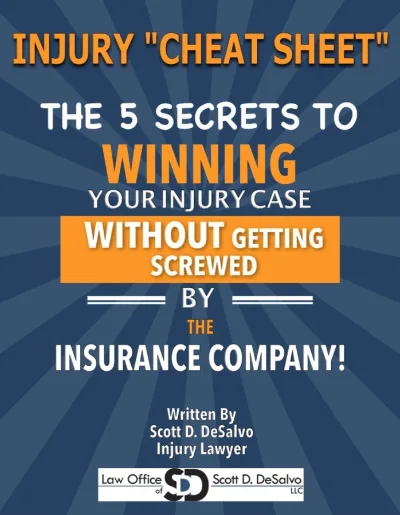

Scott DeSalvo founded DeSalvo Law to help injured people throughout Chicago and surrounding suburbs. Licensed to practice law in Illinois since 1998, IARDC #6244452, Scott has represented over 3,000 clients in personal injury, workers compensation, and accident cases.
No Fee Unless You Win | Free Consultation | 24/7 Availability Call or Text: (312) 500-4500
>>Read More
Main Office:
1000 Jorie Blvd Ste 204
Oak Brook, IL 60523
New Cases: 312-500-4500
Office: 312-895-0545
Fax: 866-629-1817
service@desalvolaw.com
Chicago and Other Suburban Offices
By Appointment Only